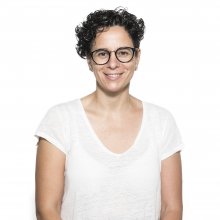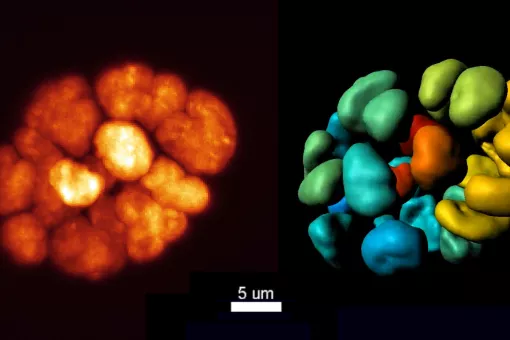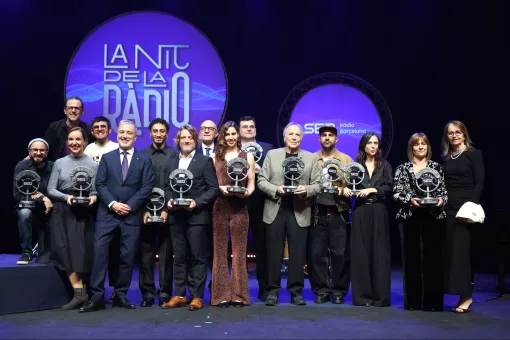Images
Each year the Fundación de Investigación del Cáncer de la Universidad de la Salamanca (FICUS) - Centro de Investigación del Cáncer (CIC) presents the 'Doctores Diz Pintado' Prize with the aim to promote and acknowledge the contribution of young Spanish researchers to Cancer Research.
Núria López-Bigas, ICREA researcher and head of the Biomedical Genomics Lab at the Institute for Research in Biomedicine (IRB Barcelona) has received the IX National 'Doctores Diz Pintado' Cancer Research Prize for her career path. The jury highlighted the relevance and impact of López-Bigas´ work, which focuses on genomics and has wide applications in personalised medicine. The researcher is the first female scientist to be presented with this prize.
Research lines
Using pioneering bioinformatics techniques, López-Bigas and her team study the mutations that underlie cancer and the mutational processes that make the genomes of our cells accumulate thousands of mutations. One of the most outstanding achievements of the lab has been the development of IntOGen and CancerGenomeInterpeter, two technologies that can be used to analyse alterations in cancer cells.
This lab has made several important discoveries related to the accumulation of genomic mutations. One such example is a recent study in which they examined the genome of more than 3500 metastatic tumour samples from patients who had received cancer treatment (chemotherapy, radiotherapy and anti-tumour treatments). The scientists observed that each of these treatments was associated with a specific mutational signature. This breakthrough is a first step toward understanding the long-term side effects of such treatments and optimizing therapies for cancer.
An expert in Medical Genetics, Computational Biology, and Bioinformatics, López-Bigas received her PhD from the University of Barcelona. During her PhD studies, she addressed the causes of hereditary deafness. Later she joined the European Bioinformatics Institute in Hinxton (Cambridge, UK) to work in the field of Computational Genomics. In 2006, she moved to the Pompeu Fabra University to head the Biomedical Genomics group. In November 2016, she joined IRB Barcelona.
About IRB Barcelona
The Institute for Research in Biomedicine (IRB Barcelona) pursues a society free of disease. To this end, it conducts multidisciplinary research of excellence to cure cancer and other diseases linked to ageing. It establishes technology transfer agreements with the pharmaceutical industry and major hospitals to bring research results closer to society, and organises a range of science outreach activities to engage the public in an open dialogue. IRB Barcelona is an international centre that hosts 400 researchers and more than 30 nationalities. Recognised as a Severo Ochoa Centre of Excellence since 2011, IRB Barcelona is a CERCA centre and member of the Barcelona Institute of Science and Technology (BIST).






